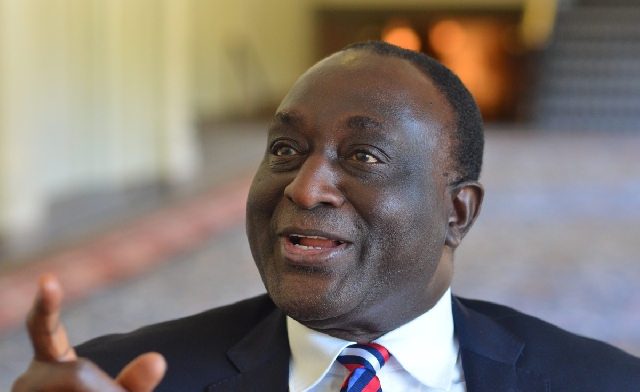1D1F: 232 of 260 factories on track – Kyerematen

The Akufo-Addo government has said 232 out of 260 factories under its flagship 1D1F industrialisation programme are near completion with some operating at full capacity.
Trade and Industry Minister, Alan Keyerematen, who announced this at the Nation Building Updates held in Accra on Thursday, 8 September 2020, also disclosed that “through the government’s 1D1F initiative, 76 projects have been completed and are in full operation, 107 projects are under construction, 36 are ready to commence constructions and 13 are in the pipeline to be financed by the Private Finance Initiative (PFIs)”.
He was speaking on the theme: ‘Industrialising Ghana; One District at a Time’.
Mr Kyerematen noted that the 1D1F agenda is the key to Ghana’s structural transformation.
He said it was about time the country moved from an agrarian economy to an industrialised economy, and, in doing so, the government will provide the necessary support to businesses to achieve this agenda.
The 1D1F initiative is a private sector-led drive envisioned by President Akufo-Addo to create the necessary conducive environment for businesses to access funding from financial institutions and other support services from government agencies so as to establish factories and production units in the various districts of the country.
It seeks to change the structure of Ghana’s economy from one which is dependent on the importation and exportion of raw material to one which is focused on manufacturing, value addition and export of processed goods by processing raw materials found largely in the 275 districts of the country into finished or semi-finished goods.
According to him, 162 of these factories, representing 72%, are new companies, whereas the remaining 64 are existing companies who were rolled onto the programme.
Highlighting the role of the programme toward Ghana’s transformation, Mr Kyerematen noted that it is “here to stay” and, therefore, the country must be inward-looking and self-sufficient in certain specific production areas by adding value to her natural resources to promote import substitution and thereby conserve Ghana’s scarce foreign exchange.








